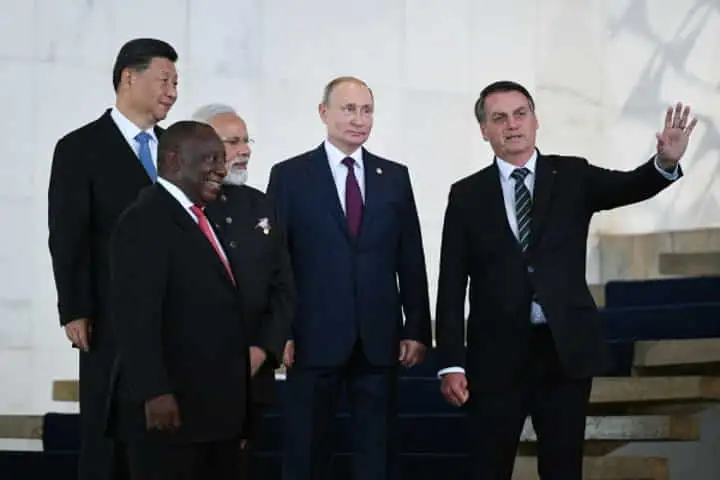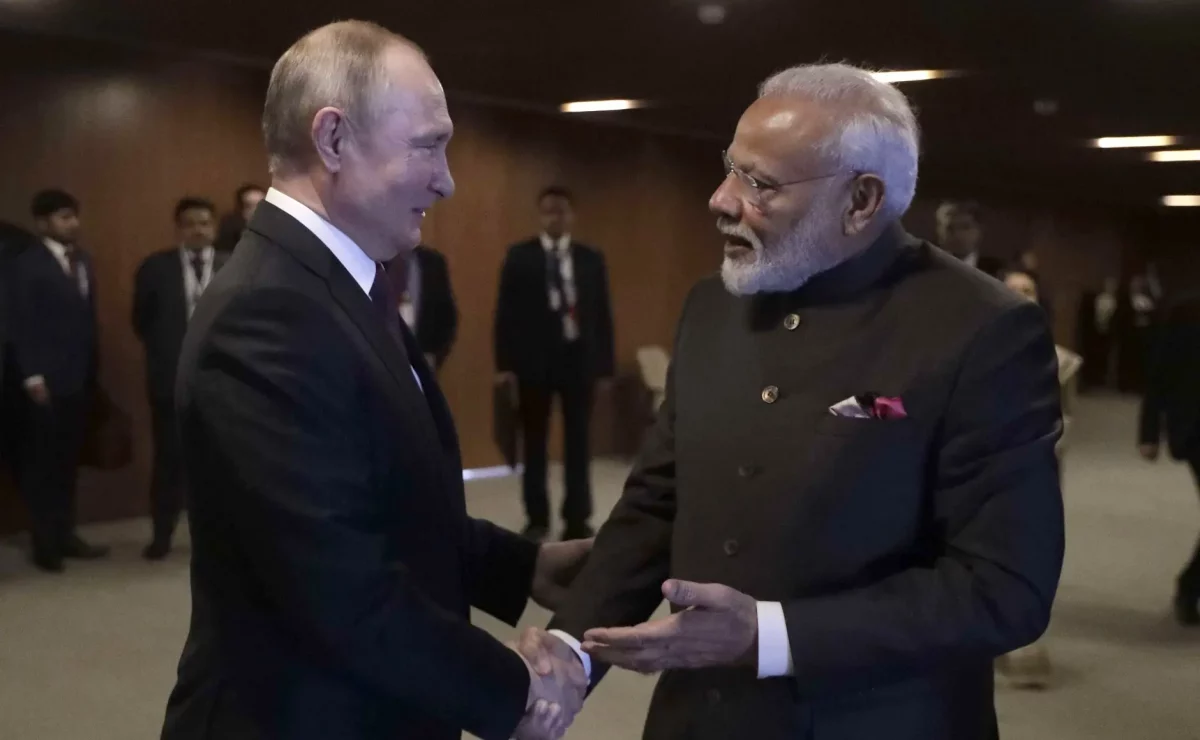Russian President Vladimir Putin has once again listed the RIC (Russia-India-China) format as a key element in Moscow’s renewed push towards deepening ties and enhancing coordination with friendly sovereign global centres of power and development.
Putin approved Russia’s updated national foreign policy concept on Friday which seeks to transform Eurasia into a “continental common space” of peace, stability, mutual trust, development, and prosperity.
Included in priority areas, goals, and objectives of the Russian foreign policy activities is increased cooperation with countries on the Eurasian continent committed to approaches that coincide in principle with the Kremlin’s approaches to “a future world order and solutions for key problems” of world politics.
The Russia-India-China troika served as an incentive for the creation of the BRICS with Brazil and South Africa joining subsequently.

India has expressed its continued commitment to fostering closer dialogue and cooperation among the three largest nations in the Eurasian region under the RIC mechanism.
However, as reported by IndiaNarrative.com earlier, New Delhi has also made it clear to Moscow that any future cooperation with Beijing, especially through the RIC trilateral, would majorly depend on China’s complete disengagement from all the friction points along the Line of Actual Control (LAC) in Eastern Ladakh in accordance with the existing bilateral agreements and protocols.
Besides the RIC, the strategic planning document bats for enhancing the capacity and international role of the interstate association of BRICS, the Shanghai Cooperation Organisation (SCO), the Commonwealth of Independent States (CIS), the Eurasian Economic Union (EAEU), the Collective Security Treaty Organisation (CSTO) and other international organisations as well as mechanisms “with strong Russian participation”.
It seeks mutually beneficial and equal cooperation with constructively-minded foreign states like India in a bid to form a Greater Eurasian Partnership.
“Russia will continue to build up a particularly privileged strategic partnership with the Republic of India with a view to enhance and expand cooperation in all areas on a mutually beneficial basis and place special emphasis on increasing the volume of bilateral trade, strengthening investment and technological ties, and ensuring their resistance to destructive actions of unfriendly states and their alliances,” mentions the updated Russian foreign policy concept.
#Russia place special emphasis on increasing the volume of bilateral trade with #India, strengthening investment & technological ties, & ensuring their resistance to destructive actions of unfriendly states and their alliances. https://t.co/M6oHwd4qsq
— Russia in India 🇷🇺 (@RusEmbIndia) March 31, 2023
As per the document, Russia will concentrate its “creative energy” on the geographic vectors of its foreign policy, which have obvious prospects in terms of expanding mutually beneficial international cooperation.
Moscow will also aim at taking advantage of its geographical position and transit potential to strengthen transport and infrastructure interconnectedness in Eurasia.
This includes Moscow’s commitment to the early launch of the International North-South Transport Corridor (INSTC) and the development of the Northern Sea Route as a competitive national transport artery with the possibility of its international use for transportation between Europe and Asia.
Also Read: Aviation to space technology, Russian regions bat for strong partnership with India




















